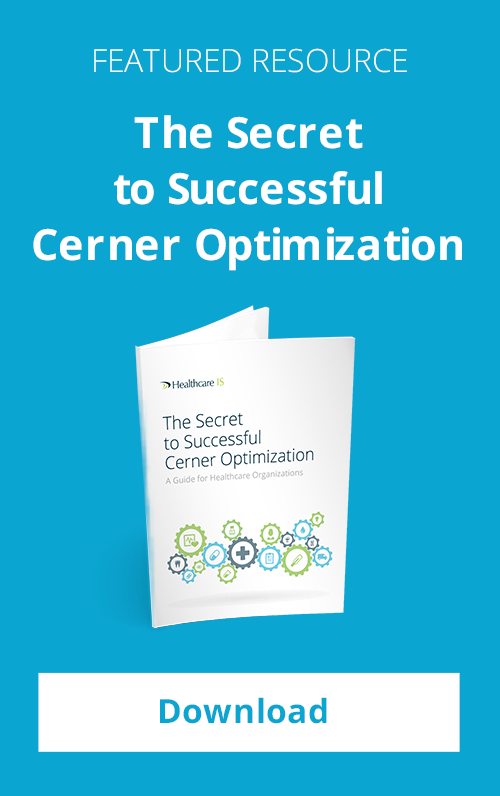State of Kansas to Upgrade Medicaid Computer System
Kansas has inked a $215 million deal with Hewlett Packard Enterprises (HPE) and partners to upgrade the Medicaid computer system in place to track patient claims payments to providers. As a major part of the deal, Hewlett Packard has tabbed Cerner to overhaul the state's Medicaid Management Information System (MMIS) to comply with new federal standards.
[Related: “The 6 Phases of a Successful Cerner Implementation” eBook]
Kansas' current MMIS was put in place in 2011 by Accenture in order to determine Medicaid eligibility, but has failed expectations. The program, Kansas Eligibility Enforcement System (KEES), was meant to improve speed and accuracy in determining applicant’s eligibility, but with prolonged delays pushing back the go-live date until last year, the result is a backlog of thousands of Medicaid applications.
Cerner Helps Solve Kansas' Medicaid Challenges
The new HPE software, called the Kansas Modular Medicaid System (KMMS), will place approved applicants into the state's Medicaid database of more than 400,000 recipients. Seamless communication and interoperability between the database, the three private insurance companies which handle Kansas Medicaid (KanCare), and the Kansas Department of Health and Environment is a key feature of KMMS. Before, when differing parts of the system attempted communication, it caused system-wide failure.
Cerner's proprietary software makes it possible to assemble data for a single patient from multiple sources into one easily accessible file. “Kansas will have a new information technology foundation for our Medicaid enterprise that will allow us to communicate targeted, actionable information from more sources in near real time to decision-makers,” said Susan Mosier of KDHE.
Cerner's program, HealtheEDW, which aggregates and normalizes data across multiple, disparate sources, gives KDHE the tools to more quickly determine possible treatments for patients. Instead of being a reactive healthcare system, Cerner's software allows access to all data related to patient care and health outcomes, which will enable KanCare to be more intelligent and predictive within the Medicaid system.
[Related: Two Signs Your EHR Optimization Project is on the Right Track]
Cerner's President, Zane Burke, said, “Historically, states collected analysis based on retroactive claims data. Working with HPE, Kansas’ Medicaid program will be able to produce intelligence based on claims plus clinical and financial information in near-real time.”
3M Partners with Cerner
In other Cerner news, 3M Health Information Systems is partnering with Cerner and its HealtheIntent population health management platform. Combining these tools allows providers to view the whole breadth of a patient's condition and care, instead of the traditional avenue of focusing treatment on a single disease.
“An episode-based payment system that is designed around the patient is the next logical step in the evolution of healthcare payment systems. By creating a defined time period, individual clinicians work as a unified team toward a single, clearly stated goal—to carry each patient across the episode finish line as efficiently and excellently as possible,” said JaeLynn Williams, president of 3M Health Information Systems.
HealtheIntent scales at a population level, but provides care at the personal and provider level. Providers are able to predict costs and improve treatments based on clinical data that helps evaluate the effectiveness of care given. While 3M's patient-focused software defines over 500 episodes of care, from acute and chronic to inpatient and outpatient, Cerner's HealtheIntent is able to support bundled payments, compare provider costs, and provide diagnosis-related group classifications.
Department of Defense Electronic Health Record Modernization Delayed
After initial testing, MHS Genesis implementation will be delayed a few months to ensure that it will operate at optimal efficiency when scaled across all of the MHS facilities.
[Related: Tips for Fixing a Botched EHR Implementation]
The first rollout was slated to begin in December 2016, at Naval Hospital Bremerton near Seattle. With the delay for further tests and trial runs, the new rollout will happen in early 2017.
"During the testing of the system, we identified the need for more time before initial deployment to ensure we are providing the best possible user experience to our beneficiaries and health care providers,” Stacy Cummings, DoD Program Executive Officer, said.
The aggressive rollout date is part of the reason for a delay. With such a large-scale, nation-wide overhaul taking place, officials say the ultimate goal is to get it right the first time. As seen in smaller healthcare IT system upgrades, such as Kansas' KanCare, if the system isn't fully functional it can result in massive problems not just for the hospitals and partnering facilities, but for the patients themselves.
Ready to move forward with a Cerner optimization project? Download our eBook today to learn the secret for success.



Comments